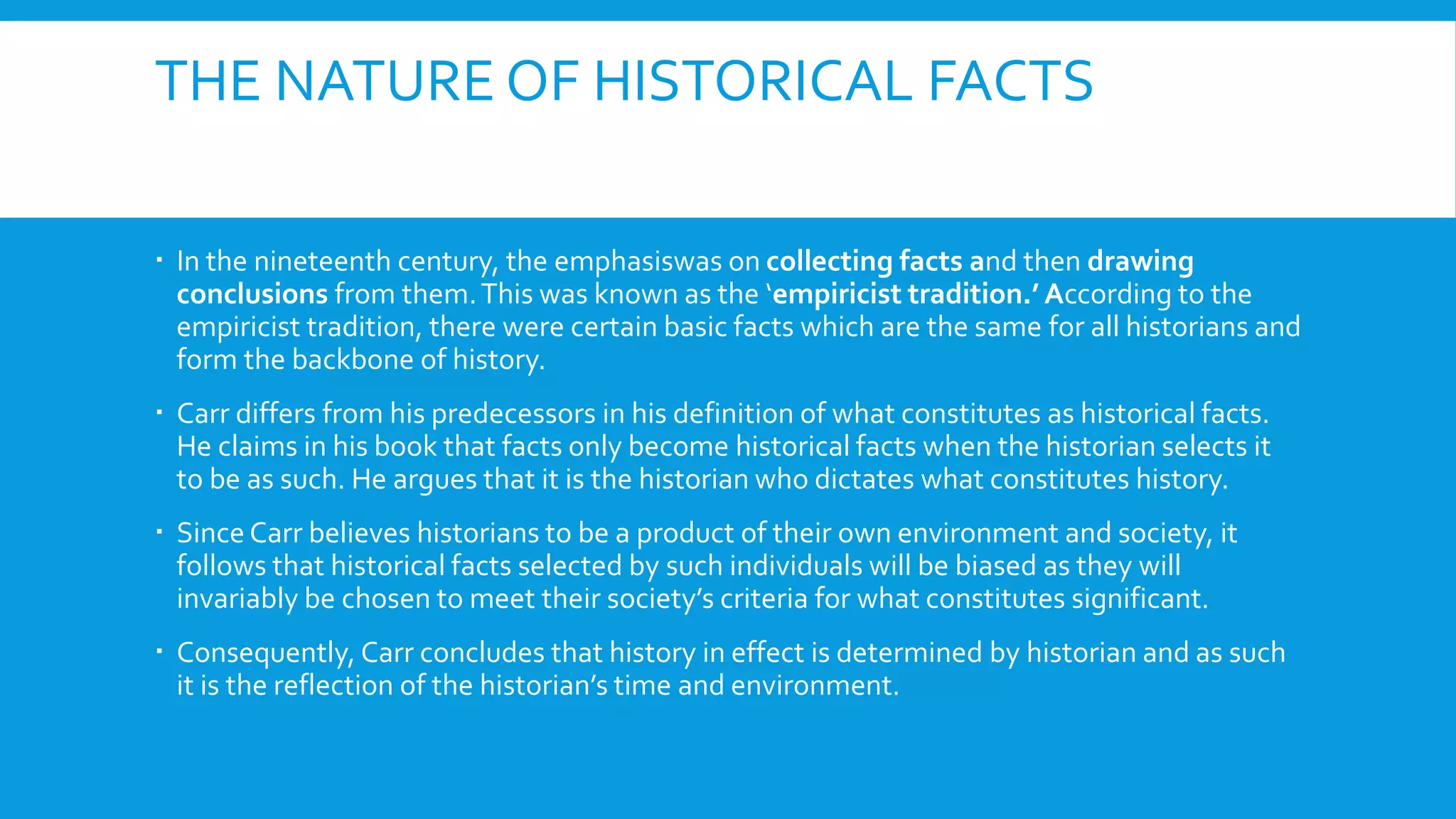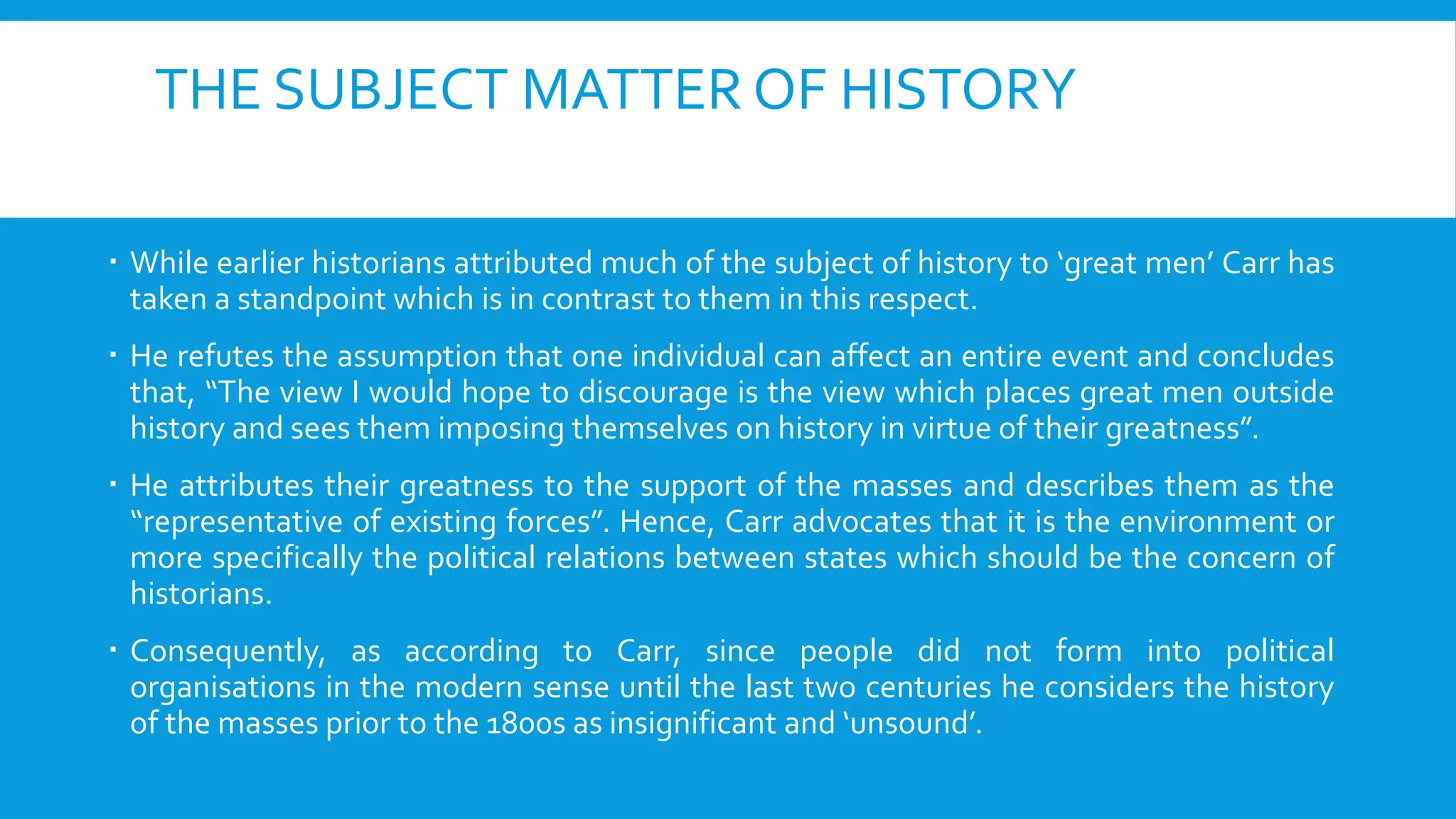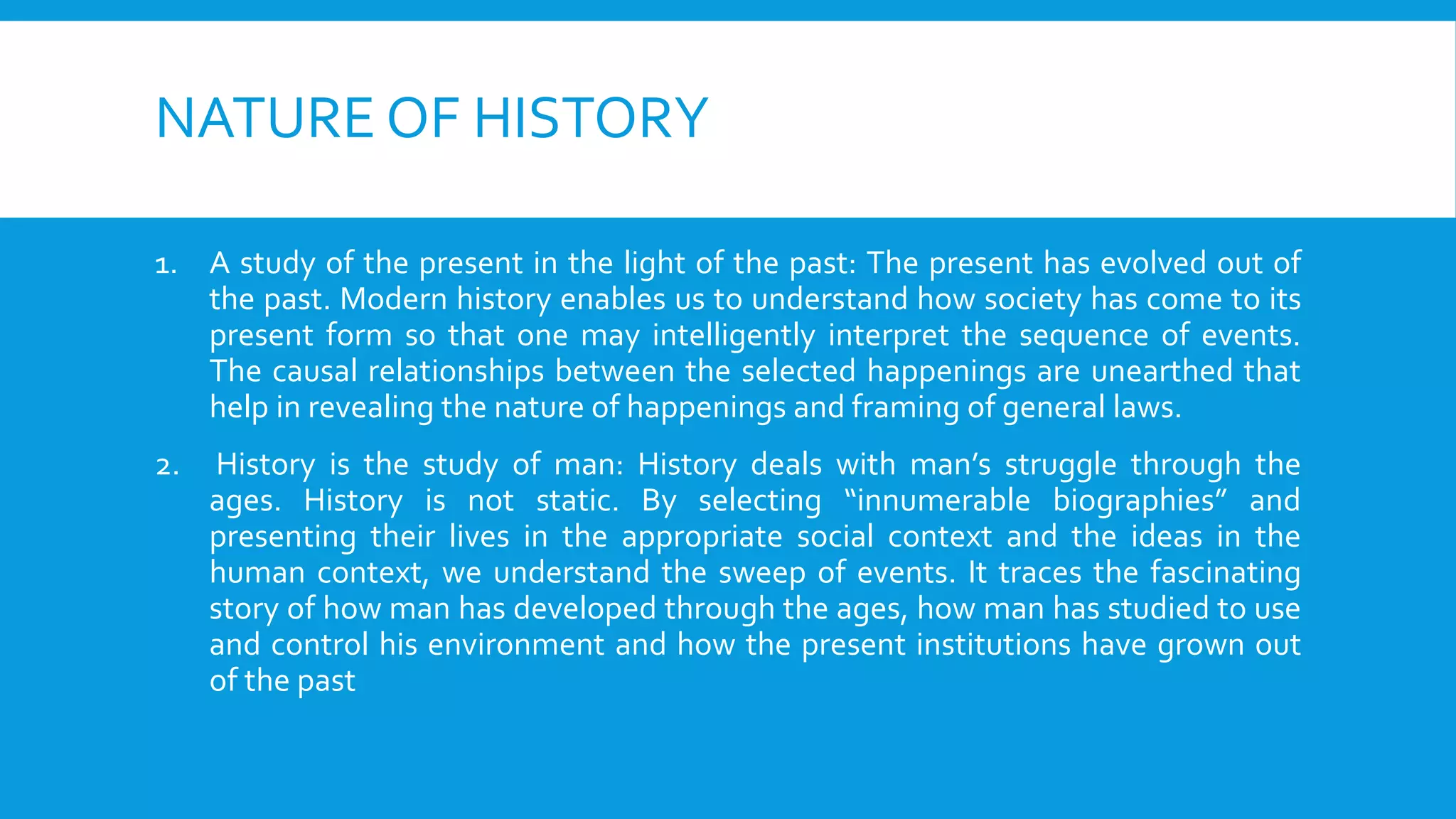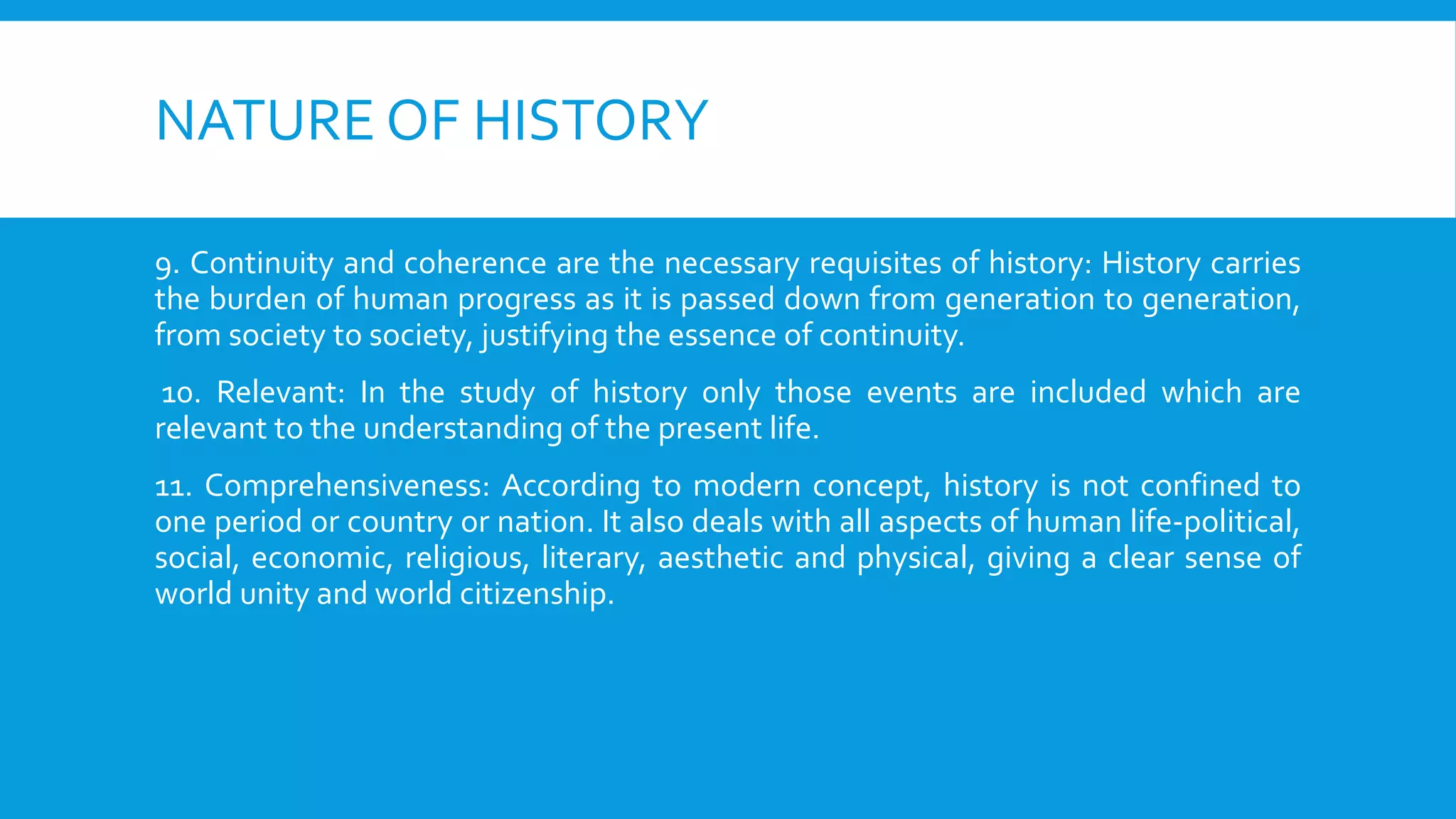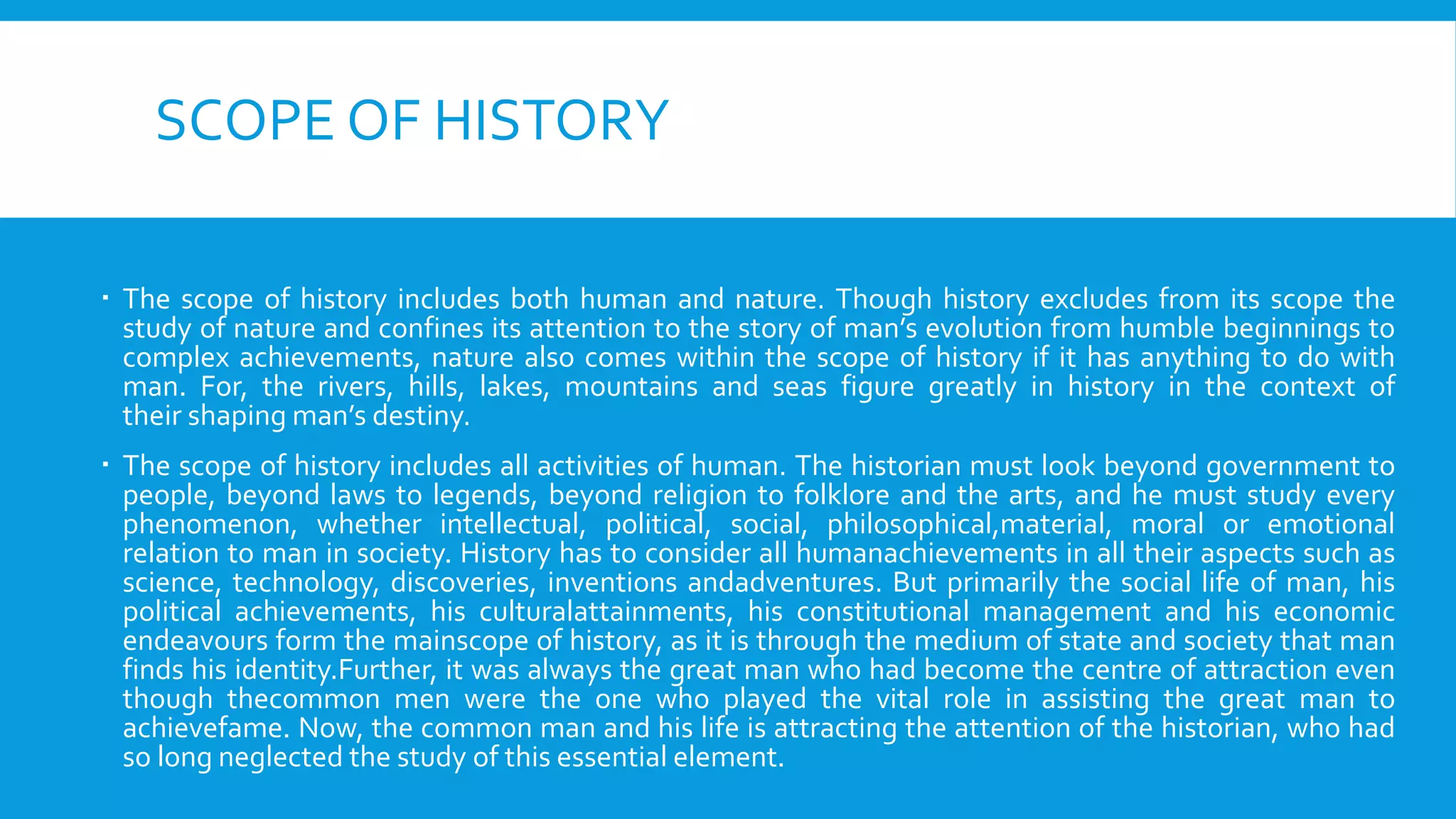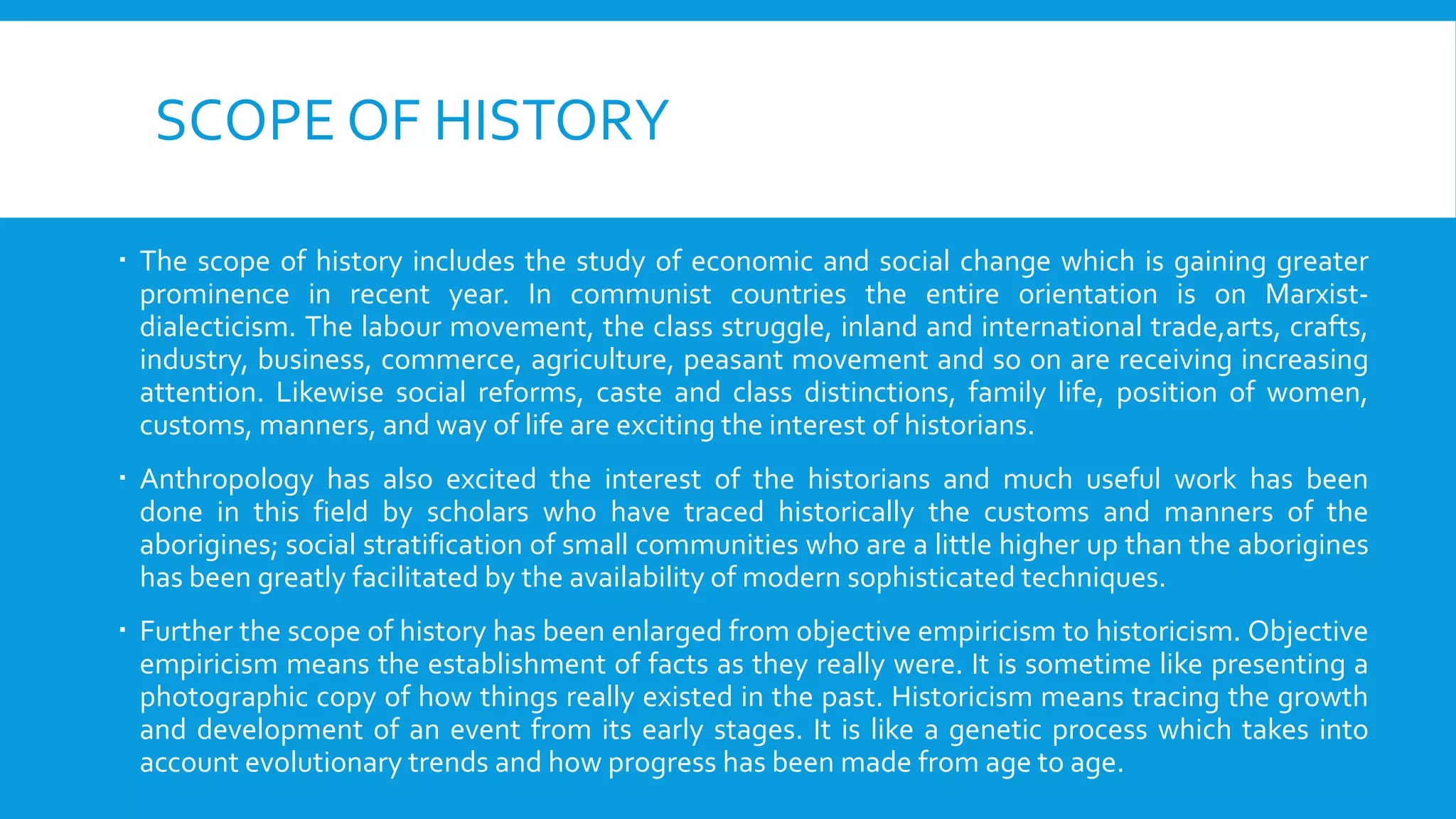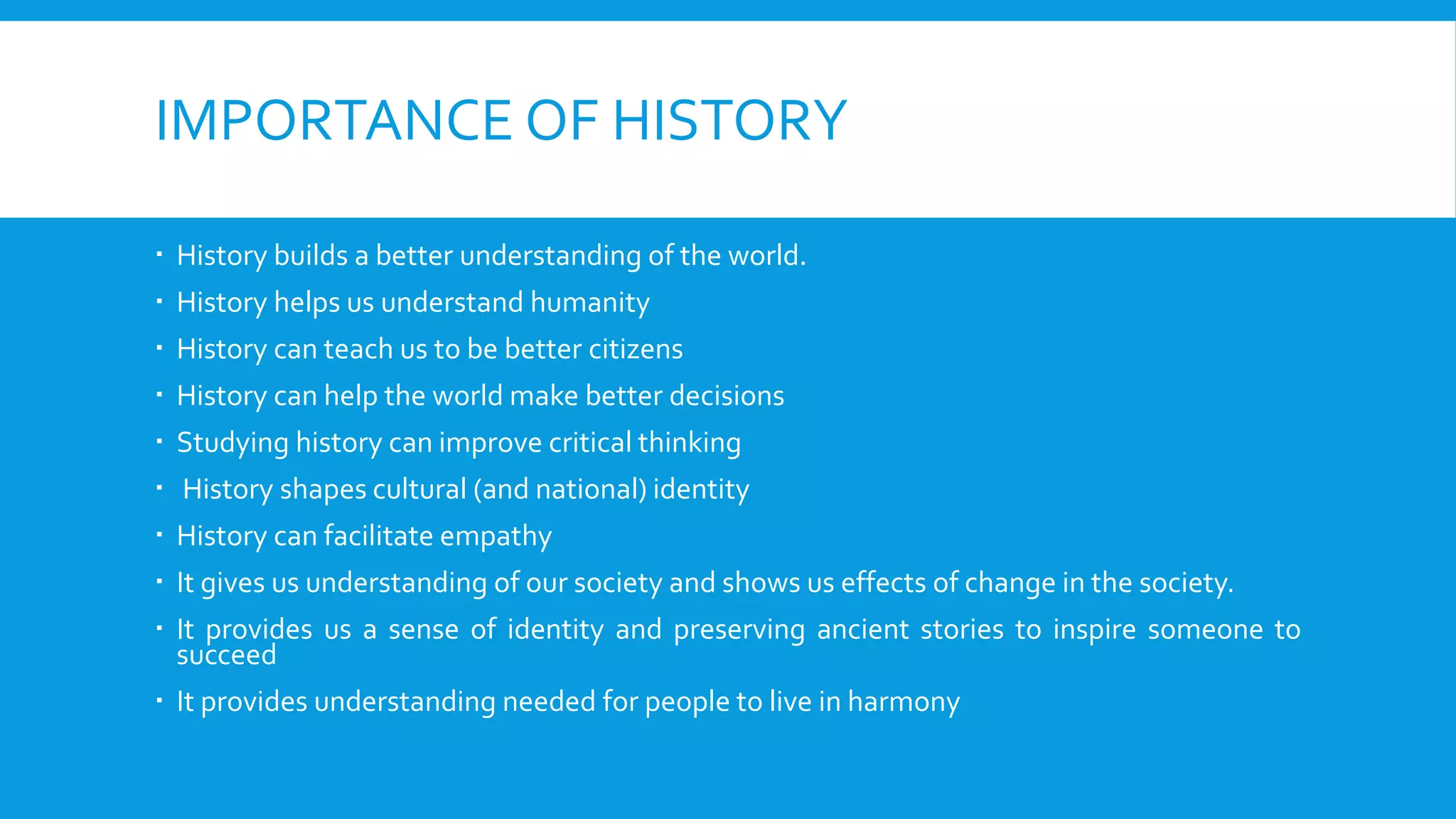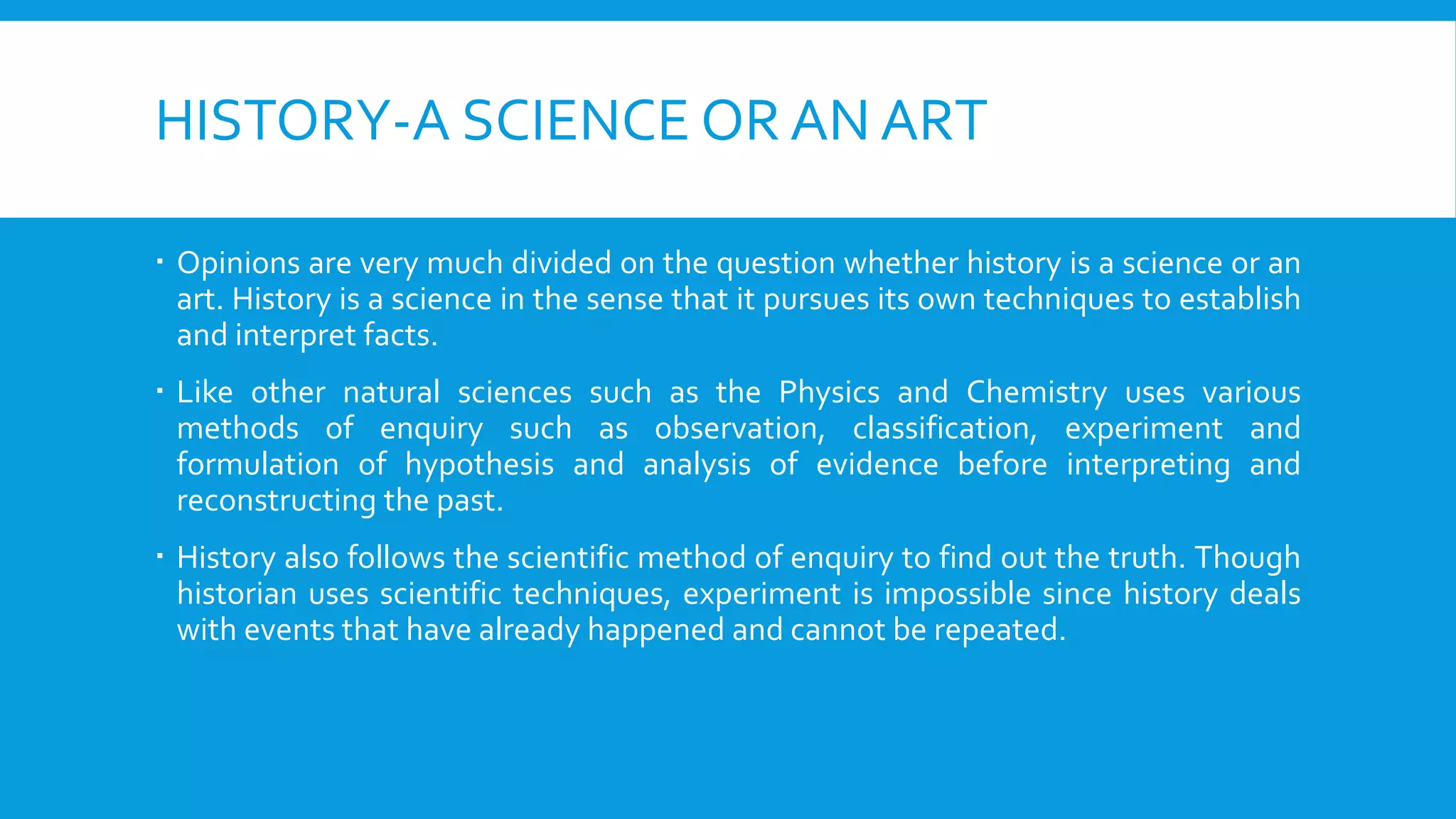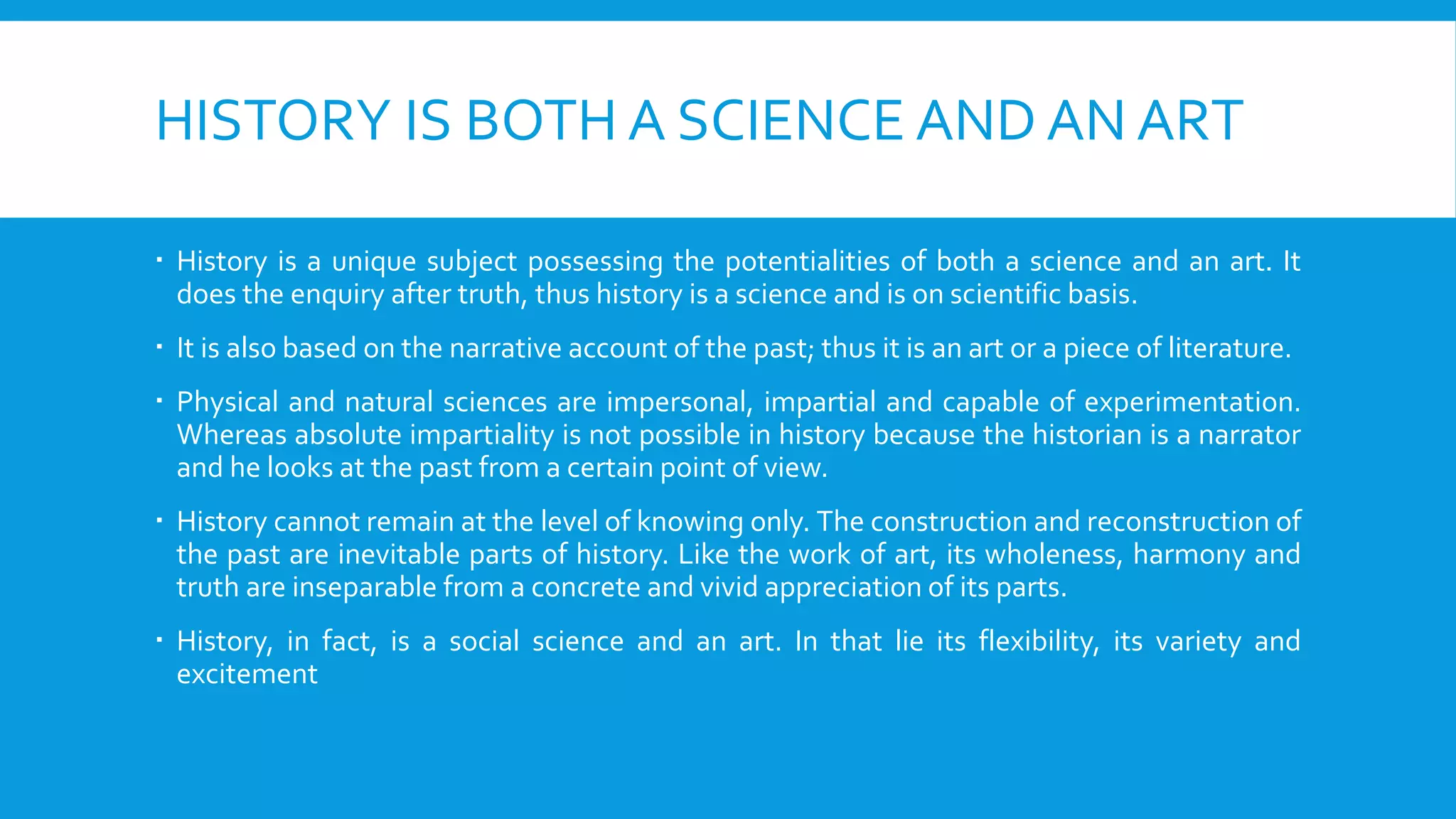1. E.H. Carr argues that historians influence how history is perceived and what facts are considered significant based on their own biases and environment.
2. Carr also asserts that historical facts are determined by the historian through a selective process, and thus history reflects the historian's own time period.
3. The subject matter of history, according to Carr, should focus on the environment and relations between political entities rather than individual "great men."
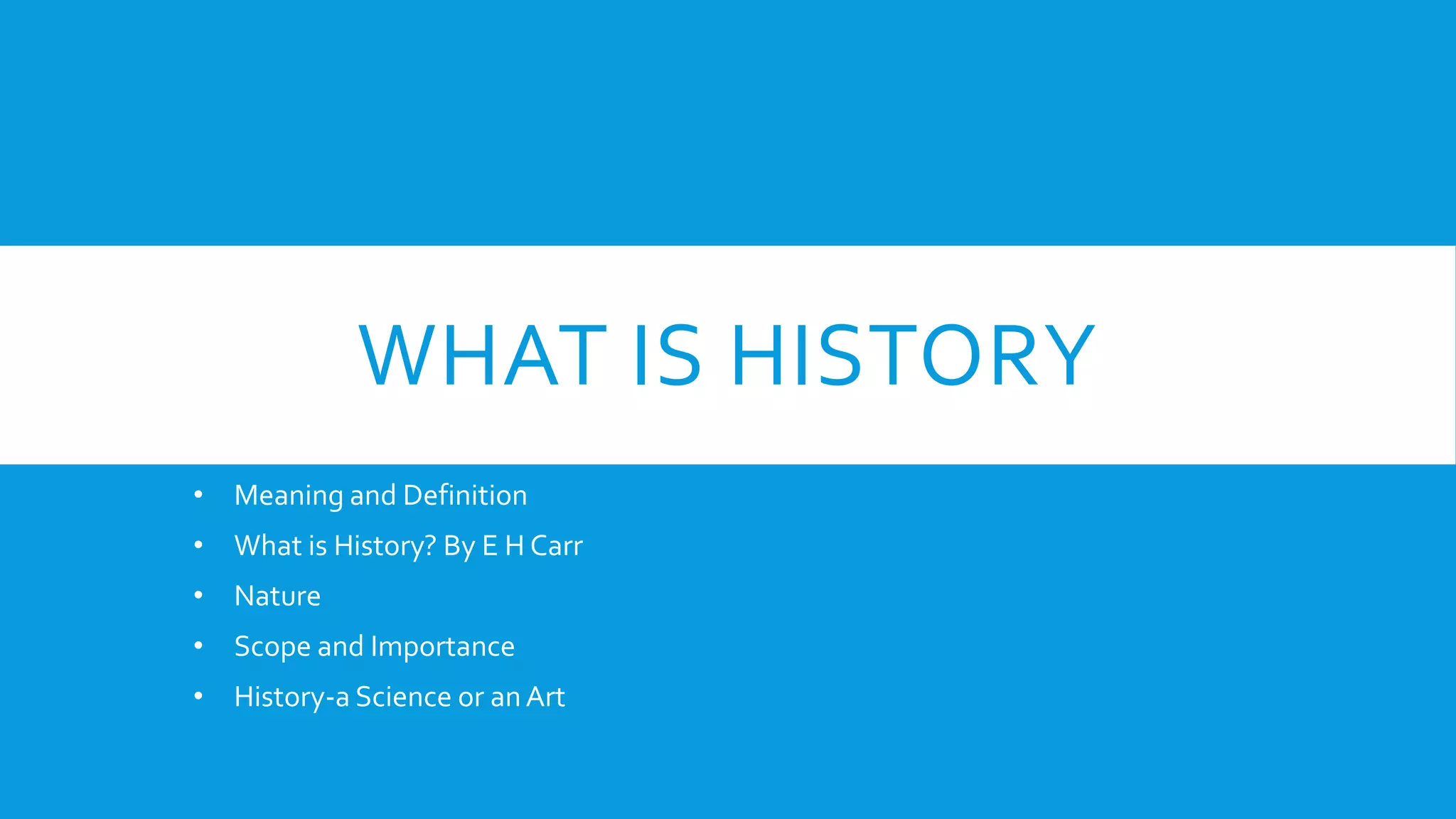
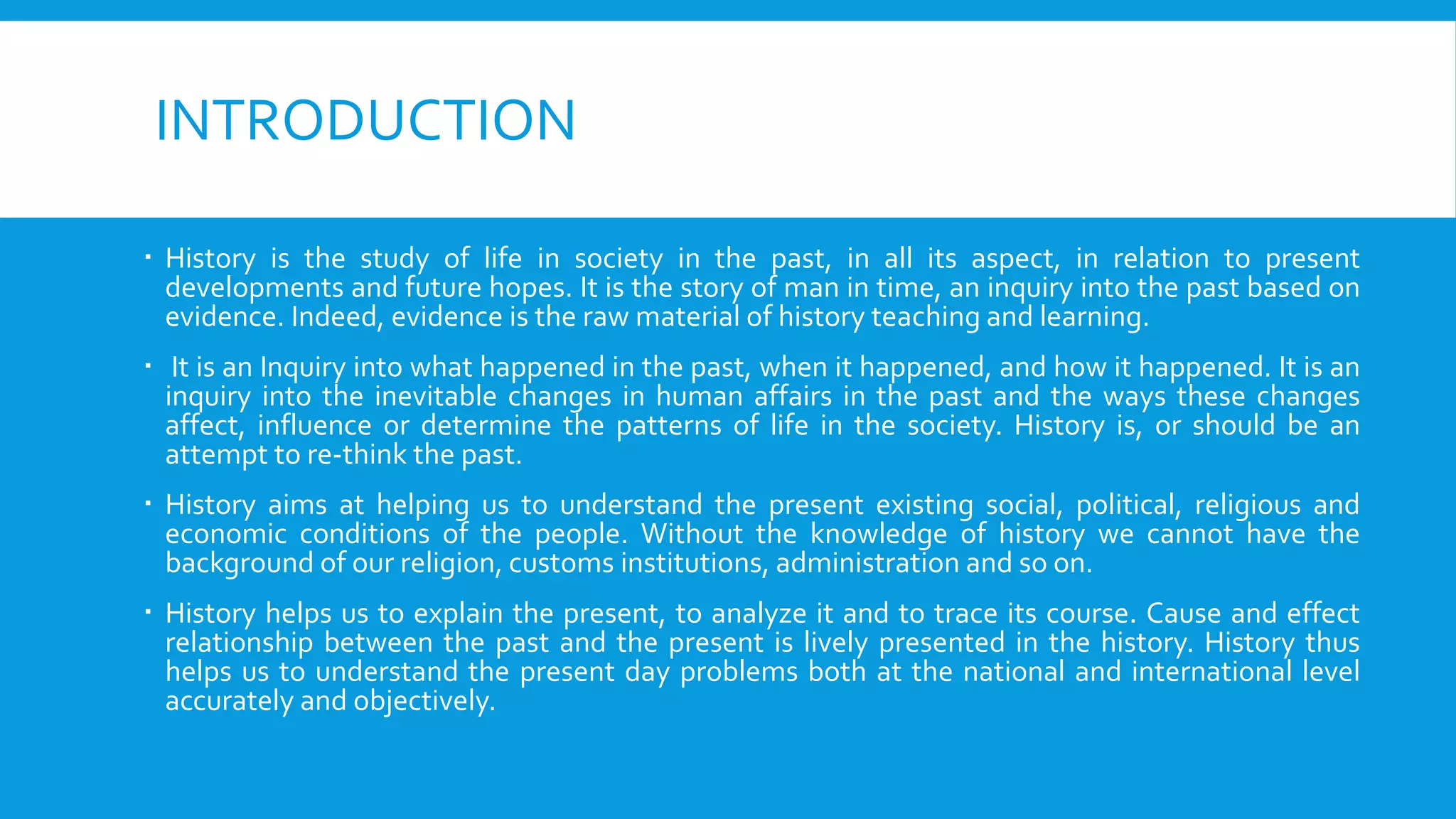

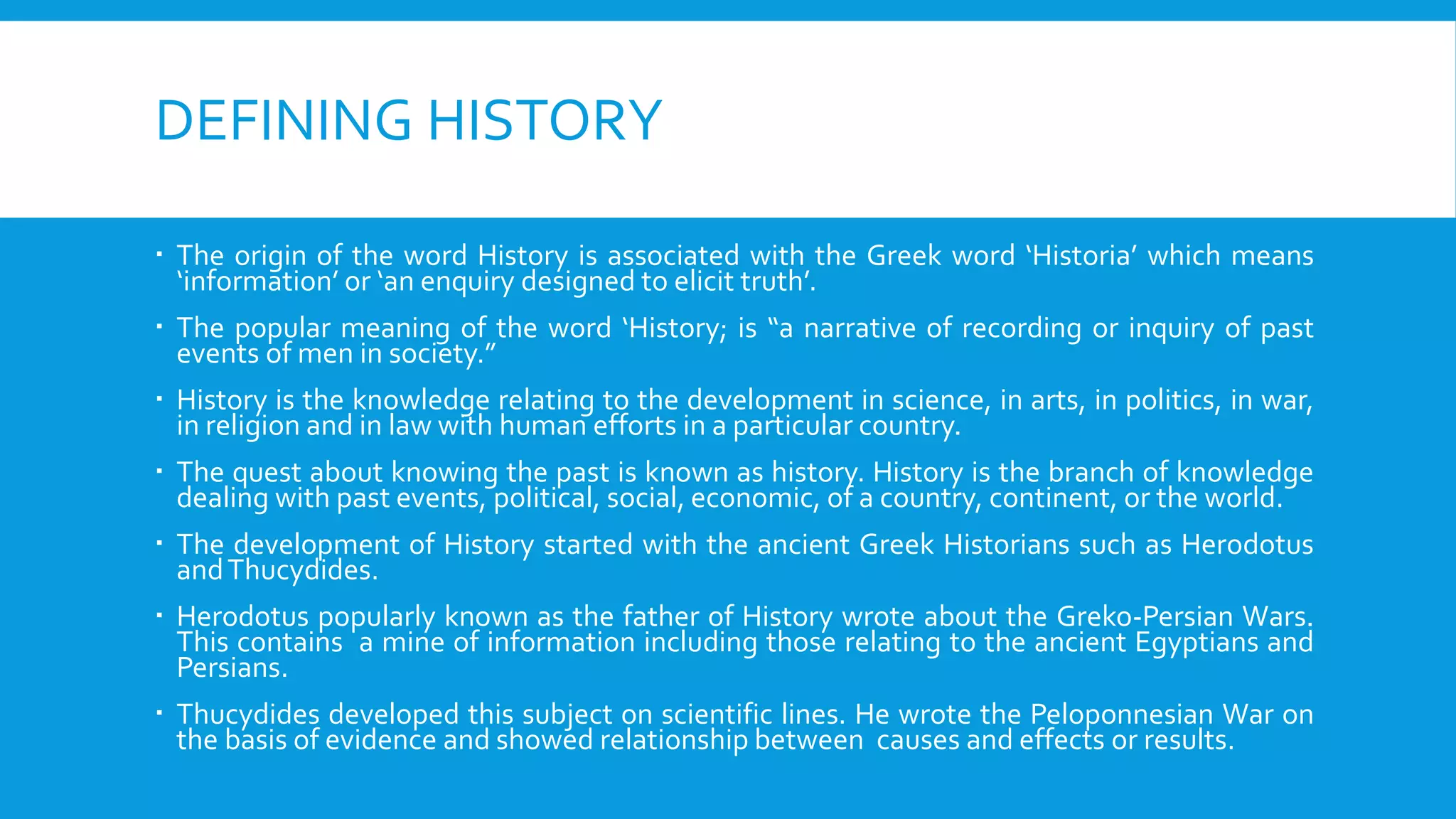

![THE INFLUENCE OF HISTORIANS ON HISTORY
E. H Carr defines history as “a continuous process of interaction between the historian and his
facts, an unending dialogue between the present and the past”.
This dialog is accomplished through historians as such he concludes, “History… [is] both the
inquiry conducted by the historian and the facts of the past into which he enquires”.
He, however, argues that historians are susceptible to bias since every person is born into a
society and invariably they are moulded by it through its environment and language as such
their interpretation of history will be subjective to meet the criteria of their own culture.
Hence, Carr describes the historian as “the conscious or unconscious spokesman of the society
to which he belongs.” Consequently, it is argued history is perceived through the environment
in which the historian lives.
The author uses various works by historians, such as Mommsen and Meineckes, to illustrate
how historians change their own views of history due to the changing of their society. For
example, Meineckes, from 1907 to 1946, went from championing German nationalism to
showing conflict then distress and finally declaring that history was at the mercy of chance.](https://image.slidesharecdn.com/history-introimportancemethodology-230708031133-3a4cbfc4/75/History-Intro-Importance-Methodology-pptx-6-2048.jpg)
